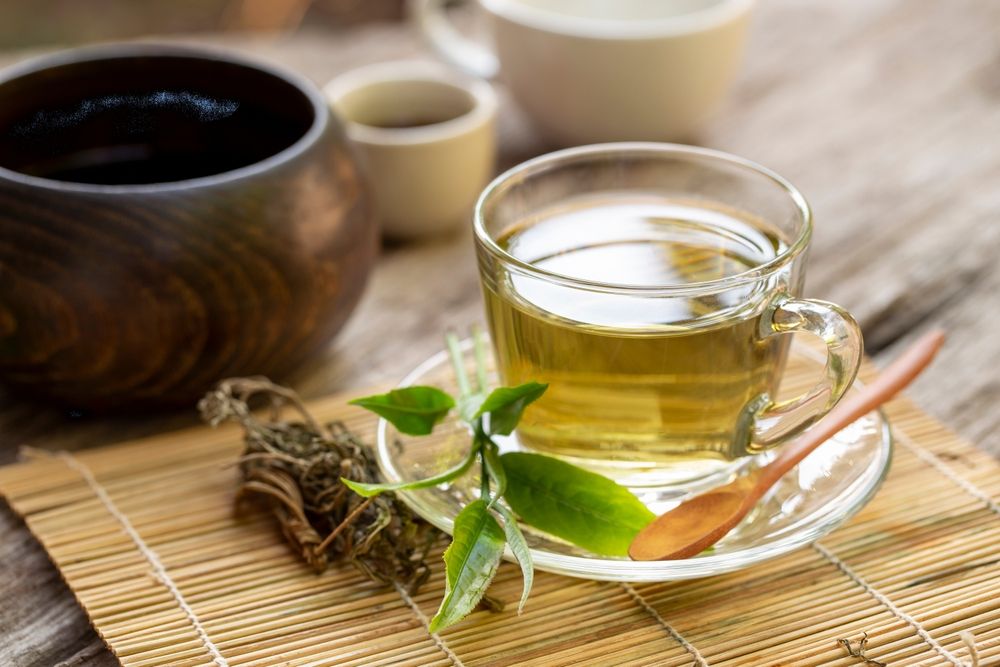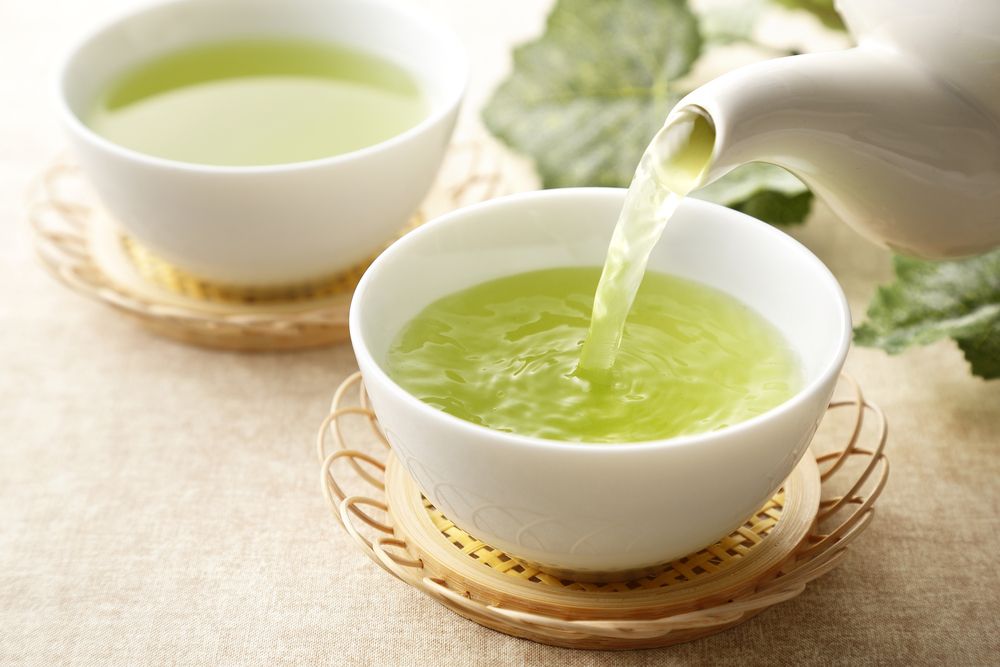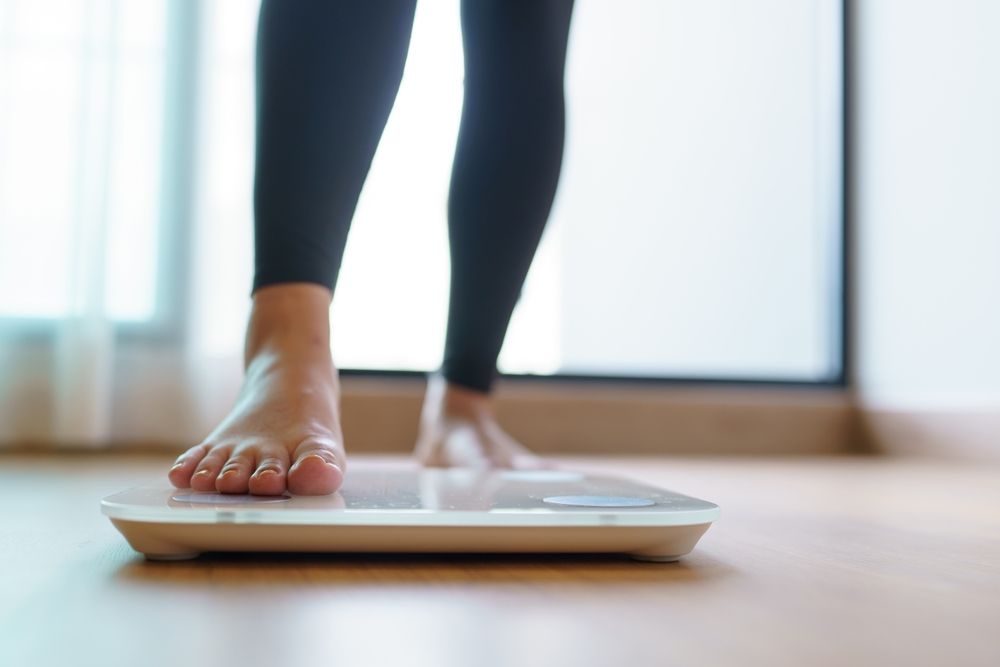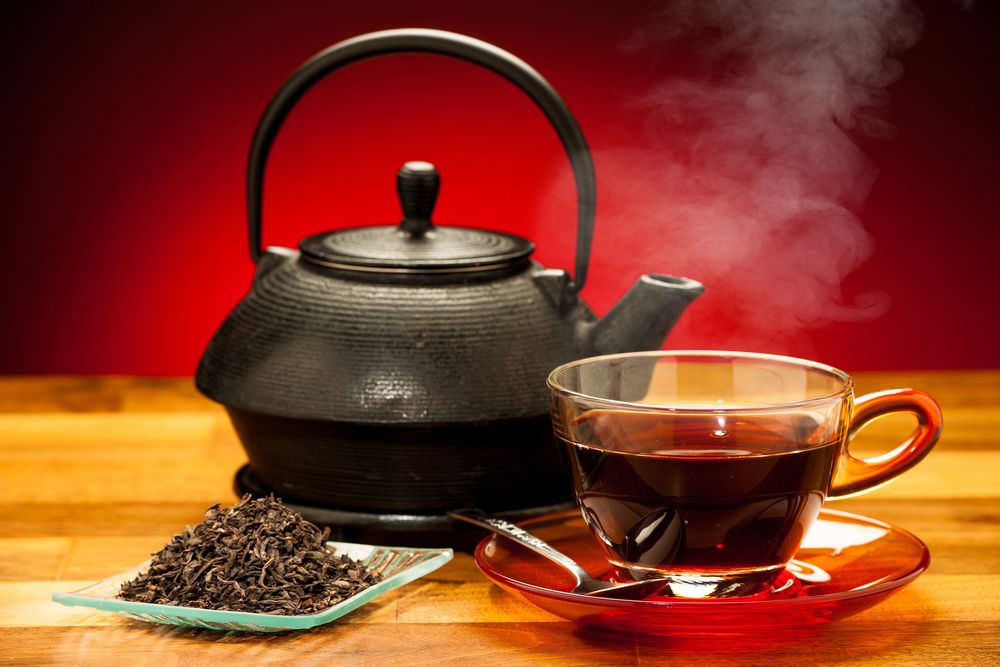
There are coffee drinkers, tea drinkers, and then there are green tea drinkers—a category all its own. It’s easy to see why green tea stands out as a unique and enjoyable hot beverage. Its soothing aroma evokes “day at the spa” vibes, while still providing just enough caffeine to kickstart your morning. But that’s not all! I decided to drink green tea for 30 days and am here to share my experience. (Yes, I even used my vintage teacup and saucer to make this new daily ritual feel extra special.)
I’d describe myself as a coffee/tea hybrid. I enjoy a good latte, cappuccino, or hazelnut iced coffee just like anyone else. When I do choose tea, it’s usually black tea or a matcha latte. However, I had never fully explored green tea as my main source of caffeine—or go-to drink—until recently. For 30 days straight, I committed to drinking one cup of green tea in the morning and another in the early afternoon (I usually cut off caffeine around 1 or 2 p.m.).
Grab a cup, and keep reading to learn all about my 30 days of green tea.
I felt less anxious.

My usual morning cup of coffee certainly gives me a wake-up boost, but it comes with a cost—coffee often leaves me feeling anxious, jittery, and on edge. When I switched to green tea, though, I found my mornings much calmer and more relaxing. It seems the soothing aroma, gentle flavor, and lower caffeine content in green tea made all the difference.
However, the flip side of this peaceful 30-day routine was that I didn’t feel as energized throughout the day. This led me to compare the caffeine content in both drinks. According to the U.S. Food & Drug Administration, an eight-ounce cup of green tea contains about 30 to 50 milligrams of caffeine, while coffee packs 80 to 100 milligrams per cup. No wonder I felt more relaxed drinking green tea!
To make up for the reduced energy, I increased my green tea intake to three cups a day—two in the morning and one in the early afternoon. That extra boost seemed to do the trick!
The amount of caffeine in green tea can be enough to keep you going; it’s just about finding the right number of cups for your needs.
"Green tea contains caffeine, a natural stimulant that can temporarily boost metabolic rate," explains Amy Goodson, MS, RD, CSSD, LD, a registered dietitian and sports dietetics specialist on our Medical Expert Board. "Caffeine activates the central nervous system and increases the release of neurotransmitters like dopamine and norepinephrine. This can improve alertness and elevate metabolic rate, helping the body burn more calories."
Green tea helped me think better.

My new green tea habit helped me think more clearly and stay focused on my daily tasks. This was a welcome improvement compared to my coffee-drinking days when I often experienced "brain fog" shortly after finishing a cup.
"The combination of caffeine and L-theanine, an amino acid found in green tea, may positively impact cognitive function," explains Amy Goodson, MS, RD, CSSD, LD. "It can boost alertness and improve mood without the jitters that often come with high caffeine intake. Some research also suggests that green tea may offer a protective effect against neurodegenerative diseases like Alzheimer's."
It calmed my stomach.

Plain and simple, I have a lot of stomach issues. Many foods and drinks upset my gut, and unfortunately, coffee has always been a major trigger, even though I love the taste. Green tea, however, turned out to be a soothing alternative for my stomach and overall gut health—and for good reason. (I always drink caffeine with food, as consuming caffeinated beverages on an empty stomach can cause more problems.)
I learned that green tea is packed with polyphenols, particularly catechins, which are "powerful antioxidants," according to Amy Goodson, MS, RD, CSSD, LD. "Antioxidants help neutralize free radicals in the body—essentially fighting off the bad guys that contribute to inflammation—reducing oxidative stress and inflammation," she explains. "This can help prevent chronic diseases and slow aging." An inflamed gut can lead to numerous issues like nausea, constipation, and more, so green tea's anti-inflammatory benefits were a welcome relief for me.
Drinking green tea can also help with weight loss.

Although weight loss wasn't my goal, it’s worth noting that green tea could support fat-loss efforts if that's something you're focusing on.
"Green tea has been studied for its potential role in weight loss and management," explains Amy Goodson, MS, RD, CSSD, LD. "It contains caffeine and catechins, which can help boost metabolism and increase fat burning. Some studies also suggest that green tea may help reduce abdominal fat." Goodson adds, "The catechins in green tea, particularly EGCG, have been shown to enhance fat oxidation, meaning the body may use fat for energy more effectively. Combined with a faster metabolism, this may contribute to weight loss or maintenance over time."

